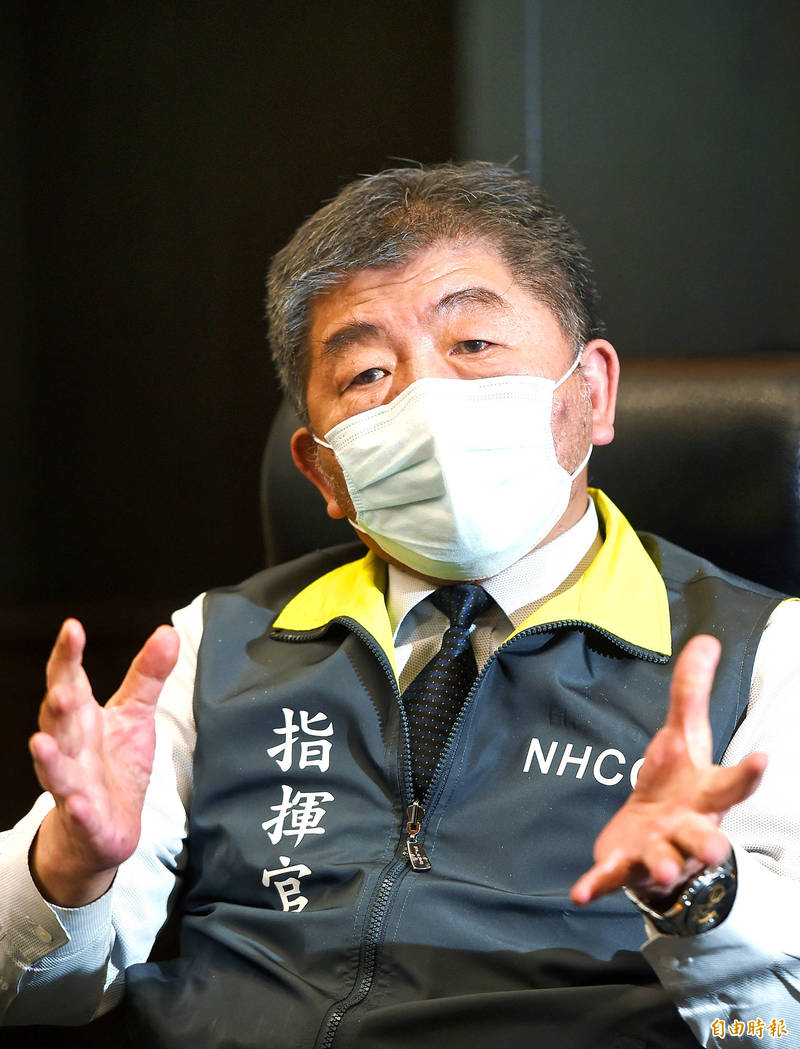《TAIPEI TIMES》 CECC to ease border curbs, starting with business travelers

Minister of Health and Welfare Chen Shih-chung speaks in an interview with the Liberty Times (the Taipei Times’ sister newspaper) in Taipei on Saturday. Photo: Fang Pin-chao, Taipei Times
By Lin Hui-chin, Wu Liang-yi and William Hetherington / Staff reporters, with staff writer
The government would begin easing some border restrictions by Wednesday at the earliest, Central Minister of Health and Welfare Chen Shih-chung (陳時中) said on Saturday.
The new measures would include allowing the entry of foreign business travelers, Chen, who heads the Central Epidemic Command Center (CECC), said in an interview with the Liberty Times (the Taipei Times’ sister newspaper).
Those entering on business visas would be subject to the same quarantine rules as returning Taiwanese nationals, he said.
However, if special circumstances arise, the CECC would establish “business travel bubbles” under which business travelers would be subjected to shorter quarantine periods, he said.
COVID-19 “measures must be implemented scientifically. Tightened rules are introduced step by step, and now loosening of the rules must also be done step by step,” he said. “If there are no unforeseen circumstances, then we will move toward reducing the barriers to border entry.”
Borders are currently open only to foreigners with residence permits, special diplomats and those on humanitarian missions. Under the new rules those who meet the requirements of a business visa would also be allowed entry, with no consideration for which country they are arriving from, he said.
Quarantine periods would be gradually reduced to 10 days from the current 14 days, according to safety considerations, he said, adding that where arrivals are quarantined — whether in a central facility, quarantine hotel or residence — would depend on the number of COVID-19 vaccine doses they have had.
“There is already scientific evidence that those who do not test positive for COVID-19 within a 10-day period are not a transmission risk to others,” he said.
The CECC is moving toward increasing the ratio of home quarantine, he said, adding that its is the most cost-effective and convenient solution for people, and the public has been cooperative in following home-quarantine rules.
“If people are fully vaccinated and are able to stay in a residence on their own, or in one room of a residence on their own throughout the quarantine period, then a longer home-quarantine period is feasible,” he said. “However, we have to take things one step at a time.”
Since international arrivals need to book airline tickets, quarantine hotels and make other arrangements that might be difficult to change on short notice, the CECC would update the quarantine regulations monthly, instead of every two weeks as is currently done, he said.
Loosened border restrictions would be accompanied by increased testing, and rapid testing kits for use in the home would be the first line of screening, he said.
Asked about opening borders to tourists, Chen said that would not happen until later, and business travelers are the government’s first priority.
“The impact of lost business deals will spill over into the following years, but tourists who do not come this year could still come next year,” he said.
Additional reporting by Yang Yuan-ting and Chiu Chih-jou
新聞來源:TAIPEI TIMES















